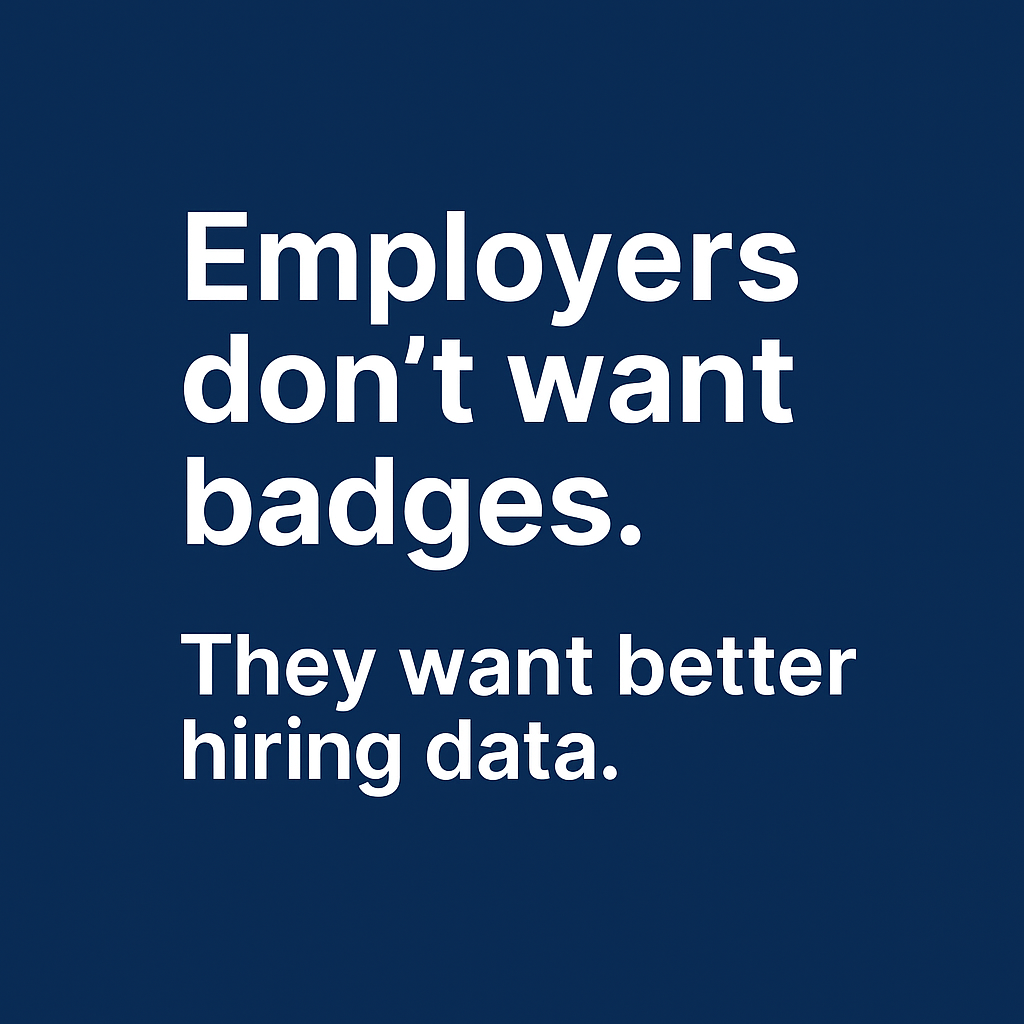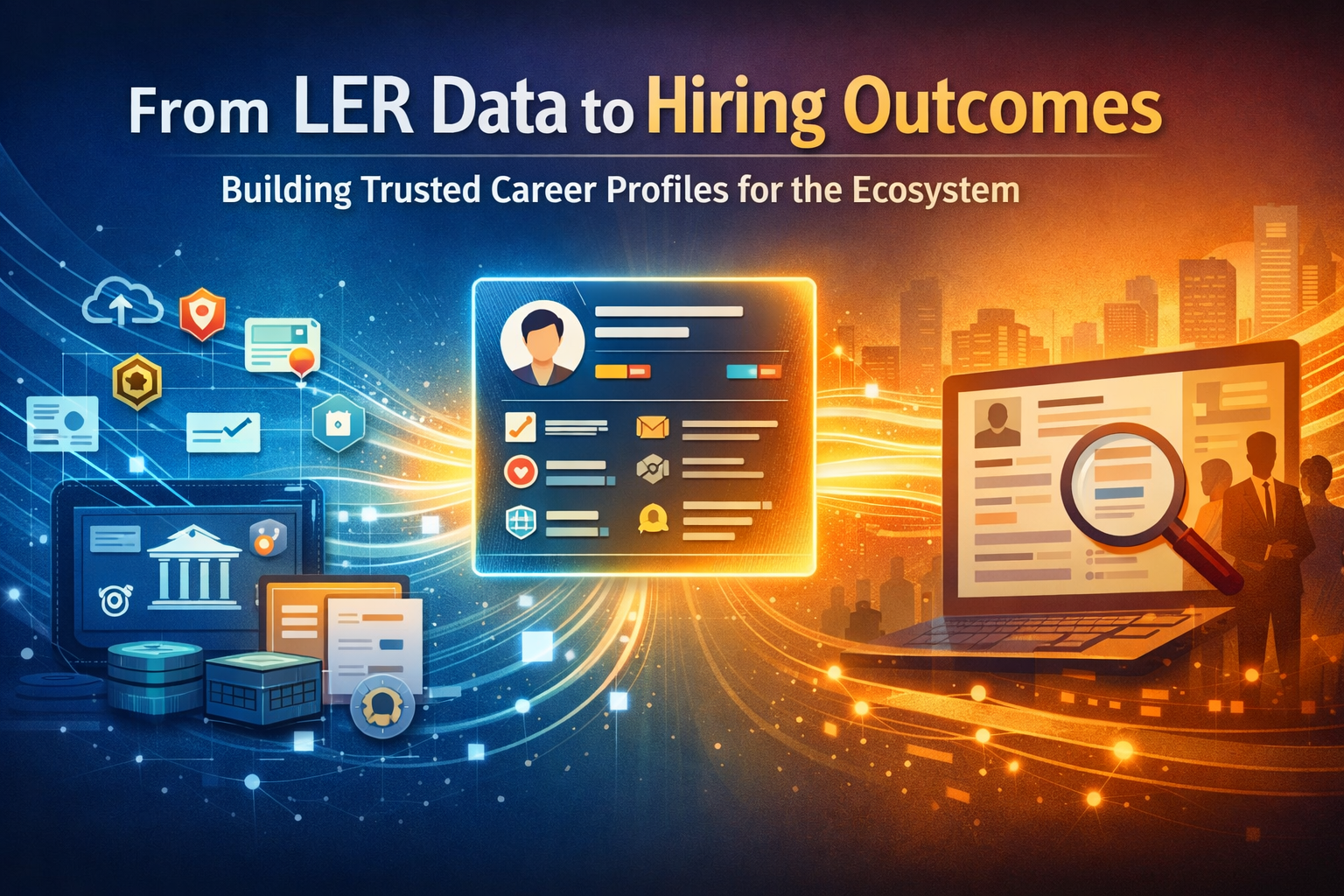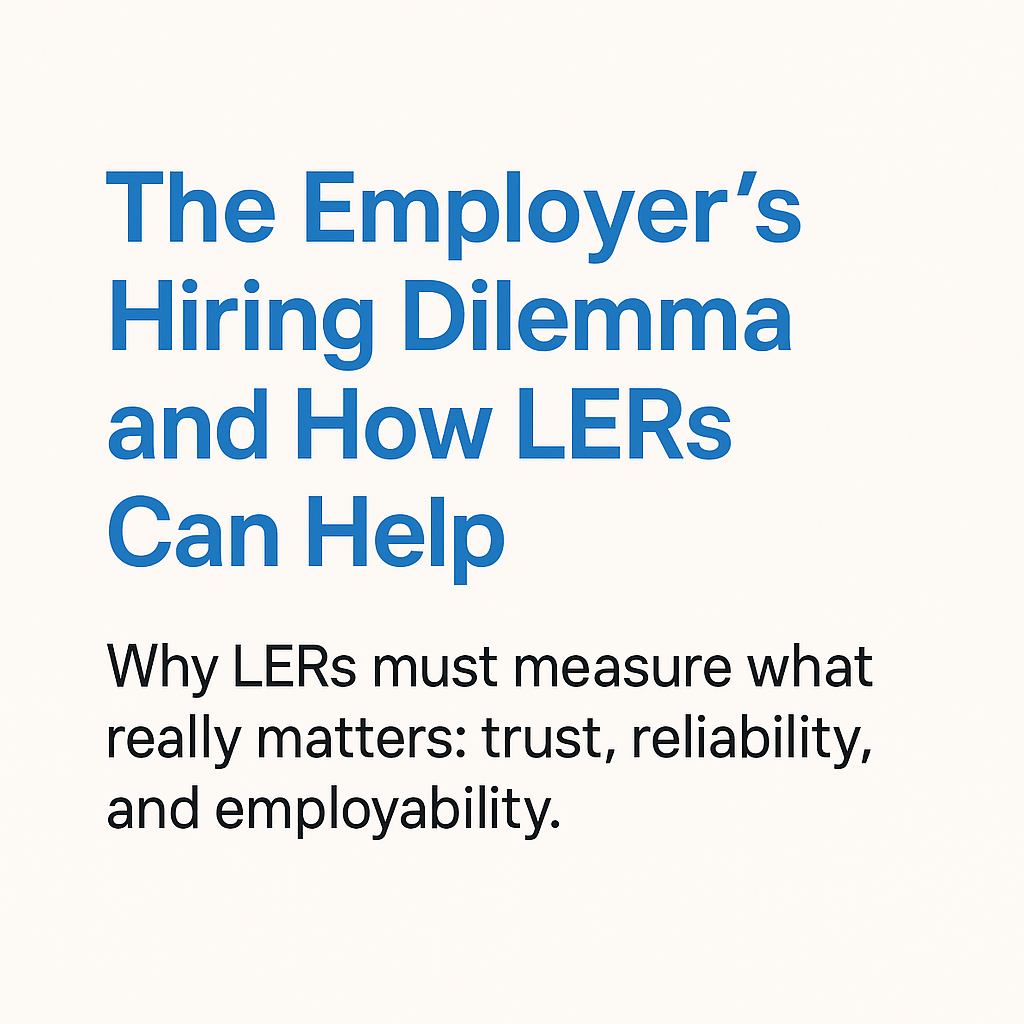Let’s settle something:
Employers aren’t asking for badges.
They’re not asking for Learning and Employment Records.
And they never will.
Not because these things aren’t valuable — but because we’re talking to them in our language, not theirs. If we want employers to adopt LER-powered solutions, we have to frame the conversation around the problems they actually face every day.
The Real Employer Pain Points
Here’s what’s keeping hiring teams up at night right now:
- AI vs. AI
Hiring teams are told to use AI to cut costs — while job seekers use AI resume builders to trick those same systems. The result: zero verifiable candidate data and costly, drawn-out vetting processes. - Shallow Talent Pools
Employers mostly see people who apply to their jobs or who they can find online. They’re missing qualified talent who don’t match traditional proxies like degrees or specific job titles. - Application Overload
AI job agents can blast out thousands of applications in minutes. Recruiters are drowning in volume, with little way to separate the real fits from the noise. - Fraud Risk
Generative AI is powering both resume creation and interviews. Recruiters report that state actors and individuals are submitting entirely fabricated or deepfake-enhanced applications—some even passing coding assessments before being exposed. - Skills-Based Hiring Without Skills Data
Employers are being pushed toward skills-based hiring, but most job seekers don’t know how to clearly identify or document their skills.
Why This Matters for the LER Community
All these challenges converge on one foundational issue: Employers lack reliable, portable, verifiable data. That’s where LERs shine—but only if we frame them as solutions to these problems, not as academic artifacts.
How to Speak Employer Language—Without Saying “LER”
Here’s how to translate LER strengths into compelling, employer-facing narratives:
- Portability
Candidates carry verifiable skills, qualifications, and training wherever they go—enabling consistent, standardized data across systems. - Verification
Employers can trust the candidate data, reducing time-to-hire, lowering the cost of vetting, and shrinking the risk of fraud. - Discovery
Enriched, valid candidate data enables proactive talent discovery—even among those not applying directly. - Equity
Employers can look beyond traditional proxies like degrees or job titles, tapping into qualified talent they'd otherwise miss. - Security
Verifiable data deters fraud—supporting the return of trusted, in-person-level confidence even in digital hiring.
The Role of SmartResume
At SmartResume, we’ve become the largest consumer of verifiable credential data in the hiring ecosystem — but the format we use is one employers already understand: the resume. We translate LER-powered data into something that plugs directly into their existing workflows, making adoption natural instead of forced.
That’s the blueprint. If we want widespread employer adoption, the LER community has to stop leading with our terminology and start leading with their problems — and the verifiable data that solves them.
Because employers don’t want badges. They want better hiring decisions. And that’s what we can give them.
Closing: A Call to the LER Community
If we want real employer adoption, the LER community must pivot—swap terminology for solutions, frameworks for real-world challenges. Because employers don’t want badges. They want better hiring decisions. And verifiable data provides that bridge.










